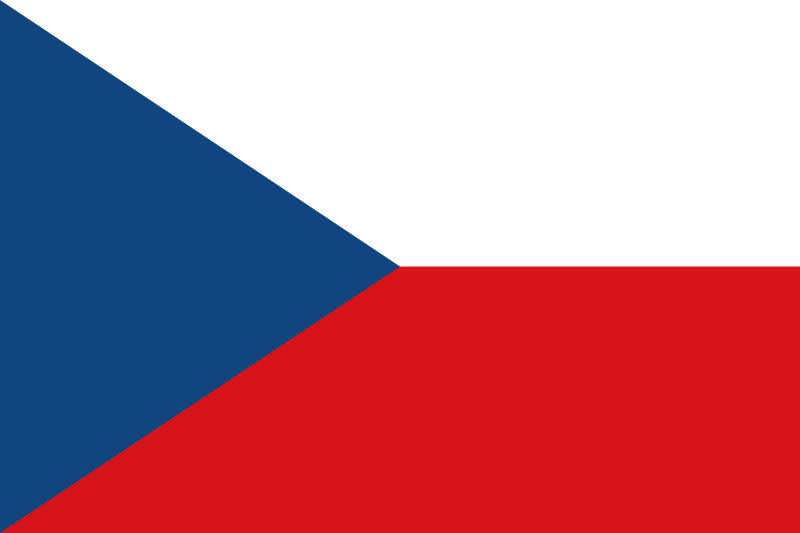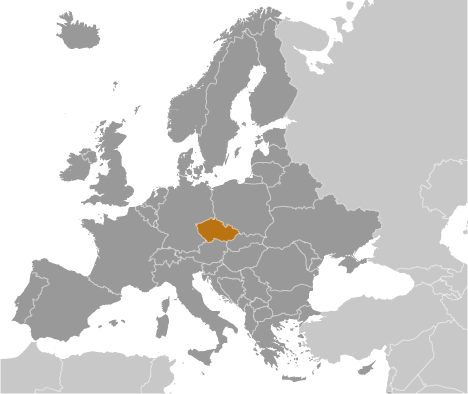HISTORICAL BACKGROUND
The 1993 Charter of Fundamental Rights and Freedoms provides for a right to information.(1) Article 17 states:
(1) Freedom of expression and the right to information are guaranteed.
(2) Everybody has the right to express freely his or her opinion by word, in writing, in the press, in pictures or in any other form, as well as freely to seek, receive and disseminate ideas and information irrespective of the frontiers of the State.
(3) Censorship is not permitted.
(4) The freedom of expression and the right to seek and disseminate information may be limited by law in the case of measures essential in a democratic society for protecting the rights and freedoms of others, the security of the State, public security, public health, and morality.
(5) Organs of the State and of local self-government shall provide in an appropriate manner information on their activity. The conditions and the form of implementation of this duty shall be set by law.
The Law on Free Access to Information was adopted in May 1999 and went into effect in January 2000.(2) The law allows any natural or legal person to access information held by State authorities, communal bodies and private institutions managing public funds. Requests can be made in writing or orally. The public bodies are required to respond to requests within 15 days.
There are exemptions for classified information, privacy, business secrets, internal processes of a government body, information collected for a decision that has not yet been made, intellectual property, criminal investigations, activities of the courts, and activities of the intelligence services. Fees can be demanded for costs related to searching for information, making copies and sending information.
Appeals are made to the superior body in the state authority concerned, which must decide in 15 days. An "exposition" can be filled when a central state body rejects an information request. The decision can then be appealed to a court under a separate law. The courts have ruled in numerous cases on issues including procedural and the relationship between the FAI and other laws, where the FAI is given precedence except where the other act sets out a complete access procedure. There has been difficulty obtaining copies of decisions from the courts and suits are pending to force disclosure.
Complaints can also be made to the Public Defender of Rights (Ombudsman).(3) The Office received 19 complaints in 2004. The office found that the largest problem was a failure by public bodies to recognize and register requests, failure to respond, violation of procedures for denying information, and refusing access to information to a person who is a party to an action.(4) The Ombudsman has also noted problems with patients and their families accessing their personal information collected during medical treatment. He issued a recommendation in 2005 regarding access to the medical files of the deceased by their families.(5)
Public bodies must also publish information about their structure and procedures as well as annual reports of their information-disclosure activities.
The 2005 implementation report to the UNECE committee reported a number of problems with access rights including conflicts between the laws on access to information and the Administrative Procedures Act, poor enforcement even when there is a court judgment ordering release of information, slow and "ineffective" court reviews and failure of government officials to release information and follow the dictates of the laws.(6) The NGO Otevrená Spolecnost's (Open Society) Right to Information Project conducted studies in 2001 and 2002 and found that citizens have obtained access in a majority of cases and the authorities have not been overwhelmed by requests.(7) It also found a number of problems including excessive fees being imposed, the overuse of commercial secrets and data protection as justifications for withholding, unjustified denials by agencies that claim that they are not subject to the act or simply ignore the law, and a failure of agencies to provide segregable information.
The Law was amended in 2006 to make a number of improvements. Courts can now order public bodies to release information rather than returning the case to the public body for re-review, fees are limited to mostly direct costs, relaxing the exemptions so that personal information and trade secrets relating to publicly funded activities can be released, and requiring public bodies to public information that has been released in a request. The changes also implement the EU Directive on the re-use and commercial exploitation of public sector information (2003/98/EC).
The Protection of Classified Information Act was approved in May 1998 as part of the Czech Republic's entry into NATO.(8) It sets 28 types of information that can be classified into four levels of classification. The Office for the Documentation and Investigation of the Crimes of Communism (UDV) is in charge of security checks. The Constitutional Court ruled in June 2002 that some provisions were unconstitutional because they did not provide for judicial review and the law was amended.(9) In March 2004, the Court rejected an appeal from the Ombudsman to find that the act was too vague in its categories of information.(10)
In April 1996, Parliament approved a law that allows any Czech citizen to obtain his or her file created by the communist-era secret police (StB).(11) In March 2002, President Havel signed legislation expanding access to the files.(12) Any Czech citizen over 18 years old can access nearly any file. The Interior Ministry's Office for the Documentation and Investigation of the Crimes of Communism (UDV) is in charge of the files.(13) The Interior Ministry was estimated to hold 60,000 records but it is believed that many more were destroyed in 1989. Another 70 meters of files about former dissidents and diplomats were discovered in its archives in 2005. The government published a list of 75,000 StB collaborators in 2003 on the Ministry's website.(14)
The 2000 Data Protection Act allows individuals to access and correct their personal information held by public and private bodies.(15) It is enforced by the Office for Personal Data Protection.(16)
The Czech Republic signed the Aarhus Convention in June 1998 and ratified it in July 2004. Law No 123/1998 on the right to information on the environment requires that public bodies disclose information on environmental matters. It was amended in 2005 to make it compatible with the EU Directive 2003 on access to environmental information.(17)
2004 freedominfo.org Global Survey Results - Czech Republic
NOTES
1. Charter of Fundamental Rights and Freedoms. http://www.psp.cz/cgi-bin/eng/docs/laws/listina.html
2. Law Dated 11 May 1999 On free access to information, 106/1999 Coll. http://mujweb.cz/www/vaske/informace.htm
3. Homepage: http://www.ochrance.cz/en/index.php
4. Annual Report for 2004.
5. The right of patients and the bereaved to receive information contained in medical documentation, January 2005.
6. UNECE, Implementation Report - Czech Republic ECE/MP.PP/2005/18/Add.6, 12 May 2005.
7. See Open Society, b.a., Free Access to Information in the Czech Republic, August 2002. http://www.otevrete.cz/index.php?id=142&akce=clanek
8. Act 148/1998 dated 11 June 1998 on Protection of Classified Information and on Amendment to Certain Acts. http://www.nbu.cz/en/act148.php Most recently amended by Act No. 310/2002 Coll. Regulation 348/2002 concerning Security Eligibility of Individuals, 22 July 2002. http://www.nbu.cz/angl/regulation.html
9. Finding No. 322/2001 Coll.
10. Pl US31/03, 11 February 2004. http://test.concourt.cz/angl_verze/doc/p-31-03.html
11. Act N. 140/1996 Coll. of 26 April 1996 on Disclosure of Files Established by Activities of the Former State Security Force. See Former Secret Police Files Will Be Open to Public. http://www.mzv.cz/washington/newslet/c09-1296.htm
12. Act 107/2002 amending Act No. 140/1996 Coll. on providing access to volumes created within the activities of the former State Security, and some other Acts.
13. Homepage: http://www.mvcr.cz/policie/udv/english/
14. Radio Prague, Czechs wait thirteen years for official names of secret police collaborators, 24 March 2003. http://www.radio.cz/en/article/38934
15. Act of 4 April 2000 on Protection of the Personal Data
16. Web Site: http://www.uoou.cz/
17. Law No. 123 /1998 on Access to Information on the Environment, of 13 May 1998. http://www.eel.nl/documents/czech_act.htm. Amended by Act No. 6/2005 Coll.





















